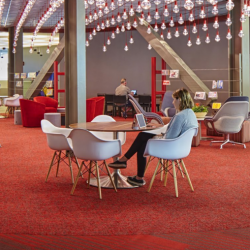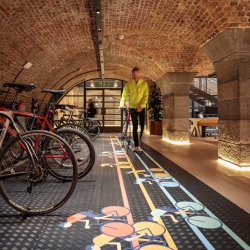To provide the best experiences, we use technologies like cookies to store and/or access device information. Consenting to these technologies will allow us to process data such as browsing behaviour or unique IDs on this site. Not consenting or withdrawing consent, may adversely affect certain features and functions.
The technical storage or access is strictly necessary for the legitimate purpose of enabling the use of a specific service explicitly requested by the subscriber or user, or for the sole purpose of carrying out the transmission of a communication over an electronic communications network.
The technical storage or access is necessary for the legitimate purpose of storing preferences that are not requested by the subscriber or user.
The technical storage or access that is used exclusively for statistical purposes.
The technical storage or access that is used exclusively for anonymous statistical purposes. Without a subpoena, voluntary compliance on the part of your Internet Service Provider, or additional records from a third party, information stored or retrieved for this purpose alone cannot usually be used to identify you.
The technical storage or access is required to create user profiles to send advertising, or to track the user on a website or across several websites for similar marketing purposes.
 Workhuman, social recognition and continuous performance management platform, has unveiled the Workhuman Charter of Workplace Rights and accompanying Workhuman Certified programme during the Workhuman Live Online broadcast. (more…)
Workhuman, social recognition and continuous performance management platform, has unveiled the Workhuman Charter of Workplace Rights and accompanying Workhuman Certified programme during the Workhuman Live Online broadcast. (more…)













 With the British workforce being asked to return to working from home amid fears of a second spike in COVID-19 cases, new research from employee experience professionals
With the British workforce being asked to return to working from home amid fears of a second spike in COVID-19 cases, new research from employee experience professionals 










 A new report, released by workplace design consultancy,
A new report, released by workplace design consultancy, 








October 20, 2020
Remote work and the risks of employee surveillance
by Joe Aiston and Alexander Barnett • Comment, Flexible working, Technology